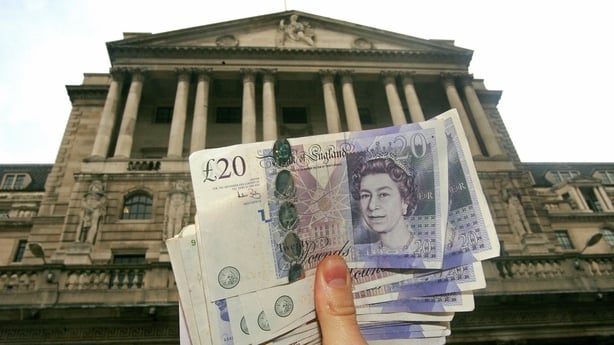The International Monetary Fund has told the Bank of England to be clear about its plans to withdraw stimulus for Britain's economy, following criticism of the central bank's communications in recent months.
In an annual review, the IMF said high inflation and Brexit could hurt growth in Britain in the years ahead.
While IMF directors backed the Bank of England's decision to raise interest rates in December and February and start winding down its £895 billion quantitative easing programme, they had some communications advice for it.
"They supported moving the policy toward a more neutral setting while emphasising that the pace of the policy withdrawal should weigh the risks to inflation and growth," the IMF directors said in their report.
"In this regard, they emphasised that predictability and clear communications about forward guidance would improve policy effectiveness," they added.
The advice comes after some investors and economists accused the Bank of Englandof mixed messaging, after it wrong-footed people who expected a rate hike in November and then raised borrowing costs in December.
The IMF noted that the Bank of England's actions had caused "turbulence in markets and some surprises".
Before December's rate rise, the IMF had advised the bank to avoid an "inaction bias" on policy but said it would need to communicate carefully with markets to prepare them for faster rate rises.
Financial markets currently expect Bank of England rates to hit nearly 2% by the end of this year - much higher than the bank's forecasts this month implied would be necessary to tame inflation.
In contrast to Bank of England Governor Andrew Bailey's suggestion last month that the central bank could scale back its guidance further, the IMF advised the reverse today.

"Clearly communicated forward guidance would have an important role to play in limiting the proliferation of second-round effects," the IMF said, referring to the possibility that high inflation becomes engrained in expectations.
UK inflation looked set to peak at around 7% in the coming months and looked set to return to the Bank of England's 2% target midway through 2024, the IMF said.
It stuck to its growth forecasts published in January, with the UK economy set to grow 4.7% this year and 2.3% next year - slightly more optimistic than the consensus of economists polled by Reuters.
But the IMF said there were big risks to growth in coming years.
"In the medium term, it may prove difficult to return to the inflation target without a period of compressed incomes and below-average growth," the IMF said.
"Meanwhile, trade problems with the EU and higher domestic adjustment costs to structural transformations may increase scarring and even reduce potential growth," the fund said.
With energy bills set to rise by more than half in April, the IMF urged the UK government not to stand in the way of price rises but to ramp up support for the worst affected households.
On the government's keystone 'Levelling Up' policy to reduce regional inequalities, the IMF saw room for greater ambition, although it said this would need to come from taxes on high earners and the wealthy.
In response, the British government told the IMF it thought current spending plans would be enough.

